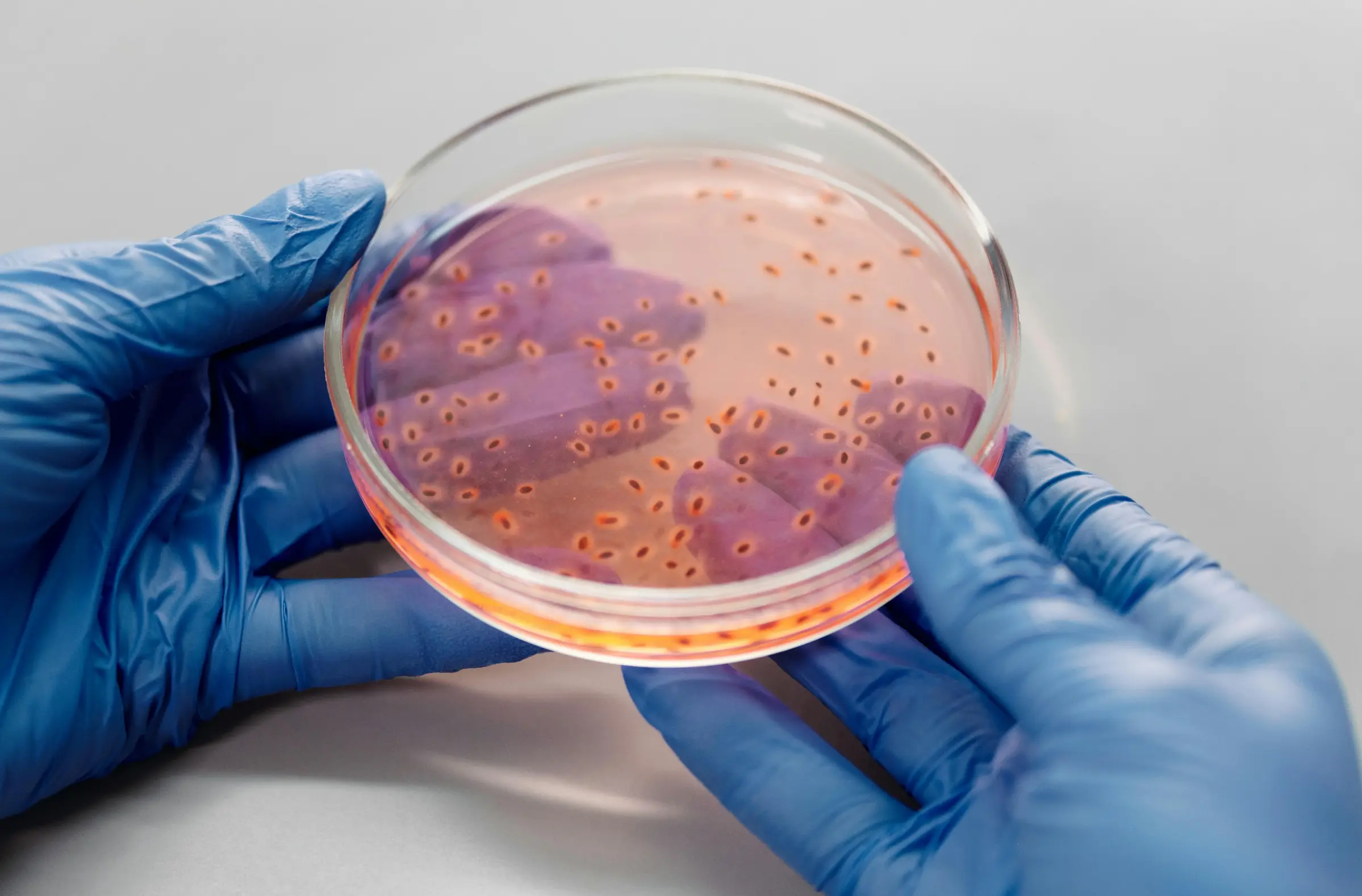Why Vitamin B3 is Important for Energy, Skin and Nervous System
Vitamin B3, also known as niacin, is an important part of the body's energy metabolism and cell health. Learn why this nutrient is essential for your health and how to ensure you're getting enough.

Introduction
Vitamin B3, also known as niacin, is one of the eight B vitamins and plays a crucial role in the body's energy metabolism and cell function. It helps convert the food we eat into energy and supports the skin, nervous system and digestion.
Despite being an essential vitamin that the body needs on a daily basis, many people are not aware of its importance or how to ensure an adequate intake.
What is Vitamin B3?
Vitamin B3 is a water-soluble vitamin, which means that the body cannot store it in large quantities and that it must be supplied regularly through the diet. It is available in two main forms:
- Nicotinic acid — Mainly used to lower cholesterol levels and improve heart health.
- Nicotinamide -- Has Anti-inflammatory properties and is widely used in skin care as well as to support cell function and DNA repair.
Both forms are important for the different biological processes of the body and can be converted between each other to some extent.
The Main Benefits Of Vitamin B3
1. Support for Energy Turnover
Vitamin B3 is a key player in the body's energy metabolism process. It acts as part of the coenzymes (NAD and NADP) that help break down carbohydrates, fats and proteins to convert them into energy that the body can use.
2. Improves Heart Health
Nicotinic acid has been shown to be able to lower LDL cholesterol (the “evil” cholesterolet) and raise HDL cholesterol (the “good” cholesterol), which can reduce the risk of cardiovascular disease. It can also help improve blood circulation and reduce inflammation in blood vessels.
3. Contributes to Skin Health
Niacin is known for its beneficial effects on the skin. Nicotinamide is widely used in skin care products because it can improve the skin's barrier function, reduce redness and inflammation, and protect against external stresses such as UV radiation and pollution.
4. Support for the Nervous System
Vitamin B3 plays an important role in supporting the functioning of the nervous system by helping to maintain good communication between the cells and nerve signals. Lack of niacin can lead to neurological problems such as difficulty concentrating and depression.
5. Antioxidant Properties
Niacin helps protect cells from oxidative stress by acting as a cofactor in enzymes that fight free radicals. This can help reduce damage from oxidative stress, which is a contributing factor to aging and disease development.
Signs Of Vitamin B3 Deficiency
A deficiency of vitamin B3 is uncommon in developed countries, but it can occur in people with a one-sided diet or certain medical conditions. Common signs of deficiency include:
- Fatigue and low energy
- Dry or irritated skin
- Poor digestion and diarrhea
- Mood swings and depression
- Severe deficiency can lead to pellagra, a serious disease characterized by dermatitis, diarrhea and dementia.
How Do You Get Enough Vitamin B3?
Foods Rich In Vitamin B3
Vitamin B3 is found naturally in several foods, including:
- Chicken and turkey
- Fish such as salmon and tuna
- Beef and liver
- Whole grain products
- Peanuts and seeds
- Mushrooms and legumes
The body can also produce a certain amount of niacin from the amino acid tryptophan, which is found in foods such as eggs and dairy products.
Supplementation of Vitamin B3
If you find it difficult to get enough niacin through your diet, supplementation may be an option. Niacin supplements come in various forms, including nicotinic acid and nicotinamide. It is important to consult a doctor before taking high doses of niacin, as it can cause side effects such as redness, itching and stomach problems.
Recommended Daily Intake of Vitamin B3
The recommended daily intake varies according to age, gender and individual needs:
- Adult males: about 16 mg per day
- Adult women: about 14 mg per day
- Pregnant women: about 18 mg per day
- Breastfeeding women: about 17 mg per day
Summary
Vitamin B3, also called niacin, is an essential micronutrient that plays a central role in the body's energy metabolism, DNA repair and cell function.
It is important for the health of the skin, the nervous system and the heart. Deficiency can lead to fatigue, skin problems and more serious health conditions. By eating a varied diet rich in meat, fish, whole grains and nuts, you can ensure an adequate intake of vitamin B3.











